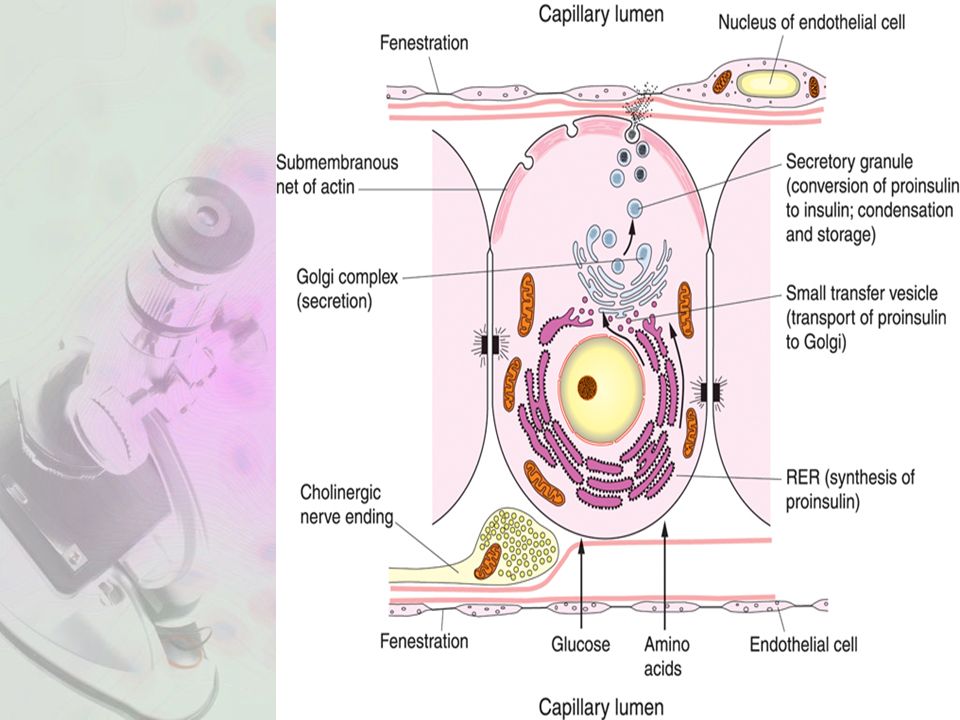Source: University of Copenhagen Jan 26, 2019 6 years, 3 months, 21 hours, 40 minutes ago
The crucial hormone insulin needs help acquiring the right structure. A protein that assists in the process of insulin folding has just been discovered in a new study conducted by researchers at the Department of Biomedical Sciences, University of Copenhagen. They hope the new research results can be used to develop treatments for conditions such as increased level of insulin in the blood known as hyperinsulinemia.
Even though researchers have been familiar with and studied the hormone insulin for more than a hundred years, especially in connection with diabetes, they still make new discoveries concerning the hormone. Now researchers from the Faculty of Health and Medical Sciences at the University of Copenhagen have uncovered a hitherto unknown process in the production of insulin. The new research results have just been published in the scientific
journal Diabetes.
Insulin is produced in the beta cells of the pancreas. The hormone is produced as a precursor called proinsulin. For proinsulin to mature into functional insulin, it needs to be folded and processed correctly to acquire the right structure with assistance from proteins that are termed chaperones. The researchers have now discovered and identified such a chaperone. A proinsulin chaperone termed glucose-regulated protein GRP94.
'Even though proinsulin has a relatively short sequence, it still needs help acquiring the right structure to become mature, functional insulin. However, several other studies have shown that proinsulin can be folded without help from proteins in artificial cell-free conditions. Yet, our study conducted in live cells shows that proinsulin is not folded correctly and does not acquire the right structure without help from GRP94,' says last author of the study, Associate Professor Michal Tomasz Marzec from the Department of Biomedical Sciences at the University of Copenhagen in an interview with
Thailand Medical News.
Impaired Insulin Production and Secretion
In the study the researchers removed or inhibited the protein GRP94 in to see what happened with the proinsulin and the cells. They observed that the proinsulin was not folded correctly and the beta cells did not secrete sufficient amounts of insulin. The researchers were surprised though to learn that removal of GRP94 did not affect cell viability. Nothing happened to the cells after they had removed the protein.
'This is surprising, because one would anticipate that the beta cells would die from stress when huge amounts of misfolded proinsulin accumulate inside the cells. It is like removing the bearing beam without weakening the construction. This indicates that the GRP94 protein plays a very specialized function and that beta cells are well-prepared to mount effective responses to deal with consequences of misfolding of proinsulin. We are currently working to understand these responses and their biological and pathological consequences,' says Associate Professor Michal Tomasz Marzec.
According to the researchers, the research results may make it possible in the future to manipulate the process from proinsulin to insulin in the body's beta cells. If you can use medicine to inhibit the assistant protein, the result would be reduced insulin secretion. This wo
uld be useful in connection with conditions like hyperinsulinemia, where the body produces too much insulin. In the long term, they also hope the new knowledge will be useful in connection with types 1 and 2 diabetes.
'We hope this new discovery will guide the development of novel drugs. Understanding the biological processes behind the production of insulin in the cells will enable us to modify the processes. We thus hope we will be able to inhibit overproduction of insulin as it occurs in children and adults with hyperinsulinemia. In the long term we also hope we will be able to increase the production of insulin, ease the large production burden of beta cells in connection with type 2 diabetes and to maintain their secretion function for longer without the need for insulin injections,' says Associate Professor Michal Tomasz Marzec.
Reference: Seyed Mojtaba Ghiasi, Tina Dahlby, Caroline Hede Andersen, Leena Haataja, Sólrun Petersen, Muhmmad Omar-Hmeadi, Mingyu Yang, Celina Pihl, Sophie Emilie Bresson, Muhammad Saad Khilji, Kristian Klindt, Oana Cheta, Marcelo J. Perone, Björn Tyrberg, Clara Prats, Sebastian Barg, Anders Tengholm, Peter Arvan, Thomas Mandrup-Poulsen, Michal Tomasz Marzec. The Endoplasmic Reticulum Chaperone Glucose-Regulated Protein 94 is Essential for Proinsulin Handling. Diabetes, 2019; db180671 DOI: 10.2337/db18-0671
